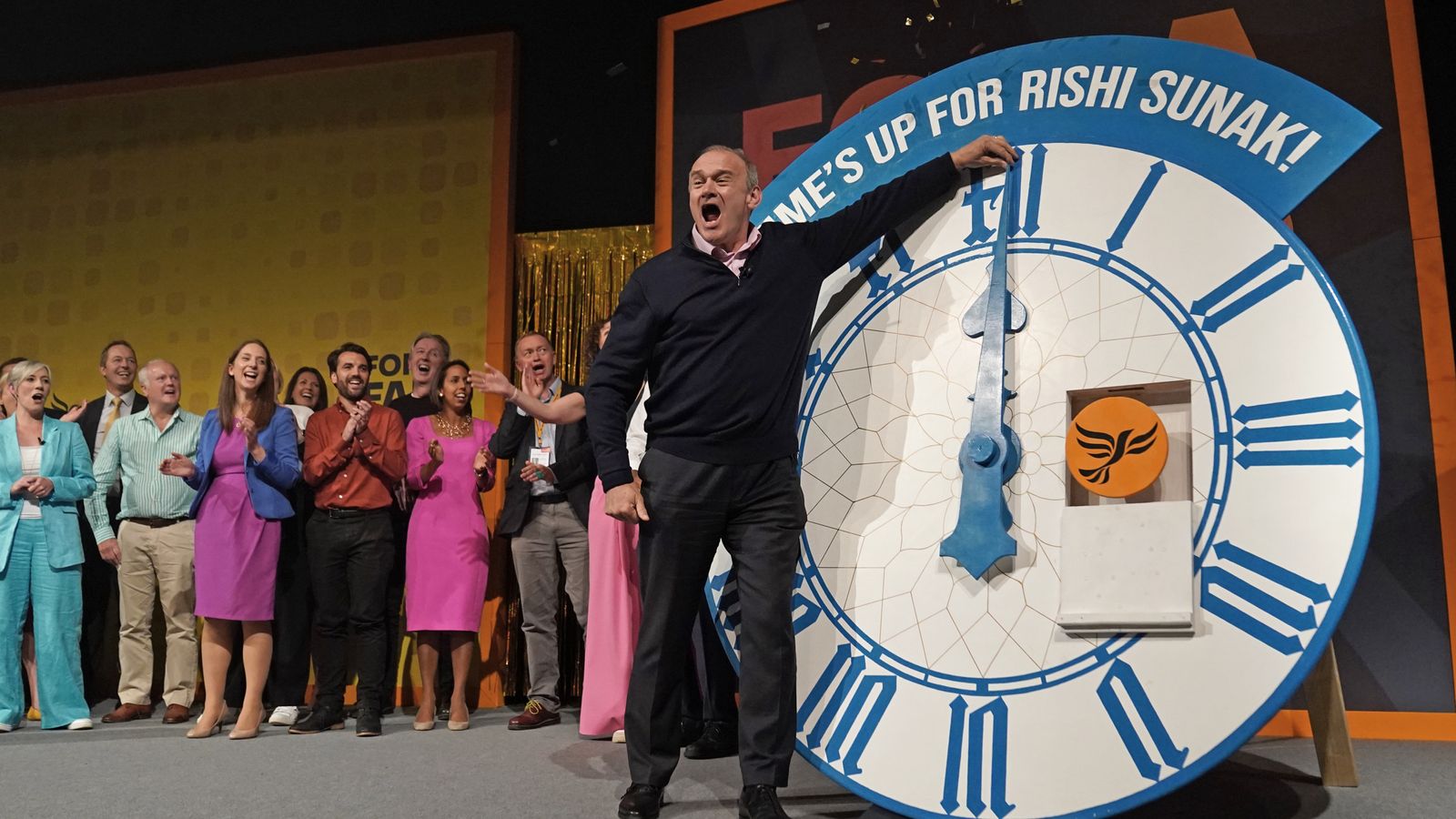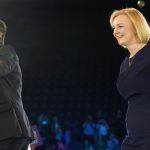The Liberal Democrats are perhaps best known for being the Conservative coalition partners in 2010 – and potential deal makers at the next general election – and the party of the European Union.
But look at these Lib Dem calling cards through the lens of the 2015 and 2019 general elections, and the picture is painful.
The decision to go into formal coalition with David Cameron for his first term finished off not just Nick Clegg but nearly wiped out the party, as the then 57-strong Lib Dems limped back to Westminster with just eight MPs left.
In 2019, the then leader Jo Swinson’s pronouncement that her party would reverse Brexit if they won an election completely misread the mood of the nation.
Ms Swinson lost her seat and the Lib Dems, having been dreaming of 40-plus seats, returned just 11 MPs to Westminster.
Four years later, and four by-election victories in blue wall battlegrounds, the Lib Dems have their tails in the air once more.
Lib Dems are daring to dream that they could once again overtake the SNP to become the third-largest party once again in Westminster – the SNP have 44 seats – with all eyes on their role as a power broker at the next general election.
But ask Sir Ed Davey about these two defining matters of his party, and he doesn’t want to talk about it, beyond trying to put to bed the nightmare of the 2010s by insisting that there will be no deal, of any configuration – coalition, confidence and supply – with the Tories.
Please use Chrome browser for a more accessible video player
I asked him several times in our short sit down in Bournemouth if he’d be prepared to do a deal with Labour, and he simply wouldn’t answer, saying he “would not speculate about what else might happen after polling day” (despite being happy to speculate on what he’d do if the Tories needed Lib Dem support).
If it looks like Sir Ed is trying to squirm out of a tricky answer, it’s because he is.
With up to 80 seats in his sights and only a couple of them as Lib/Labour battlegrounds, Sir Keir Starmer really isn’t the enemy.
Read more:
Sir Ed Davey hints at post-election deal with Labour
Analysis: Most important Lib Dem conference in almost a decade
The main thing key audiences want to hear in blue wall seats is that – in the words of one ally – the Lib Dems are the people who will get rid of the Tory MP.
They don’t particularly want to hear about the deal he might be doing with Labour.
But the non-answer speaks volumes.
Whether it is Sir Keir for Labour or Sir Ed for the Lib Dems, both leaders when I have pressed on this issue will not rule out some sort of post-election deal.
Sir Ed won’t deal with the Tories, Sir Keir told me he won’t deal with the SNP (do you remember the “vote Labour get the SNP” campaign of 2015, when a tiny Ed Miliband was placed in Alex Salmond and then Nicola Sturgeon’s pocket?).
Whether they do a deal and how will inevitably be a theme of the next general election.
Sir Ed is also reluctant to be drawn on another defining issue of the Lib Dems recent past – Brexit – refusing in our interview to even verbally re-state the party’s EU position as set out in its 50-page ‘Fair Deal’ that the Lib Dems’ long-term aim is to return the UK to the single market and be a member of the European Union.
Please use Chrome browser for a more accessible video player
I have watched a number of interviews in recent days with the Lib Dem leader in which he has refused to state the party’s official position.
He did in ours too, despite my best efforts.
As thousands of people took to the streets in London over the weekend to protest against Brexit, the party that once championed the cause like no other appears – like Labour – to have quit the pitch.
Be the first to get Breaking News
Install the Sky News app for free
It hasn’t gone unnoticed at conference, with disquiet from some over the leadership’s failure to take a sufficiently strong pro-European position threatening to spill over into open rebellion.
Baroness Ludford, the Lib Dems’ spokesperson in the House of Lords, told delegates bluntly she thought the “leadership has got this wrong”.
But for Sir Ed, this is intensely political.
Click to subscribe to Beth Rigby Interviews… wherever you get your podcasts
Ask the Lib Dem leadership team, and they’ll point out that Brexit is not relevant on the doorstep, with voters wanting to talk about the NHS and the cost of living.
Meanwhile, there are Conservative seats which voted Brexit that have turned Lib Dem, such as North Shropshire, Tiverton, and Somerton and Froome, and where brandishing his Brexit and Labour coalition credentials won’t help him one bit.
A Lib Dem leader then with the biggest chance in a decade to become a serious player once again. Just don’t mention deals, or Brexit.






















